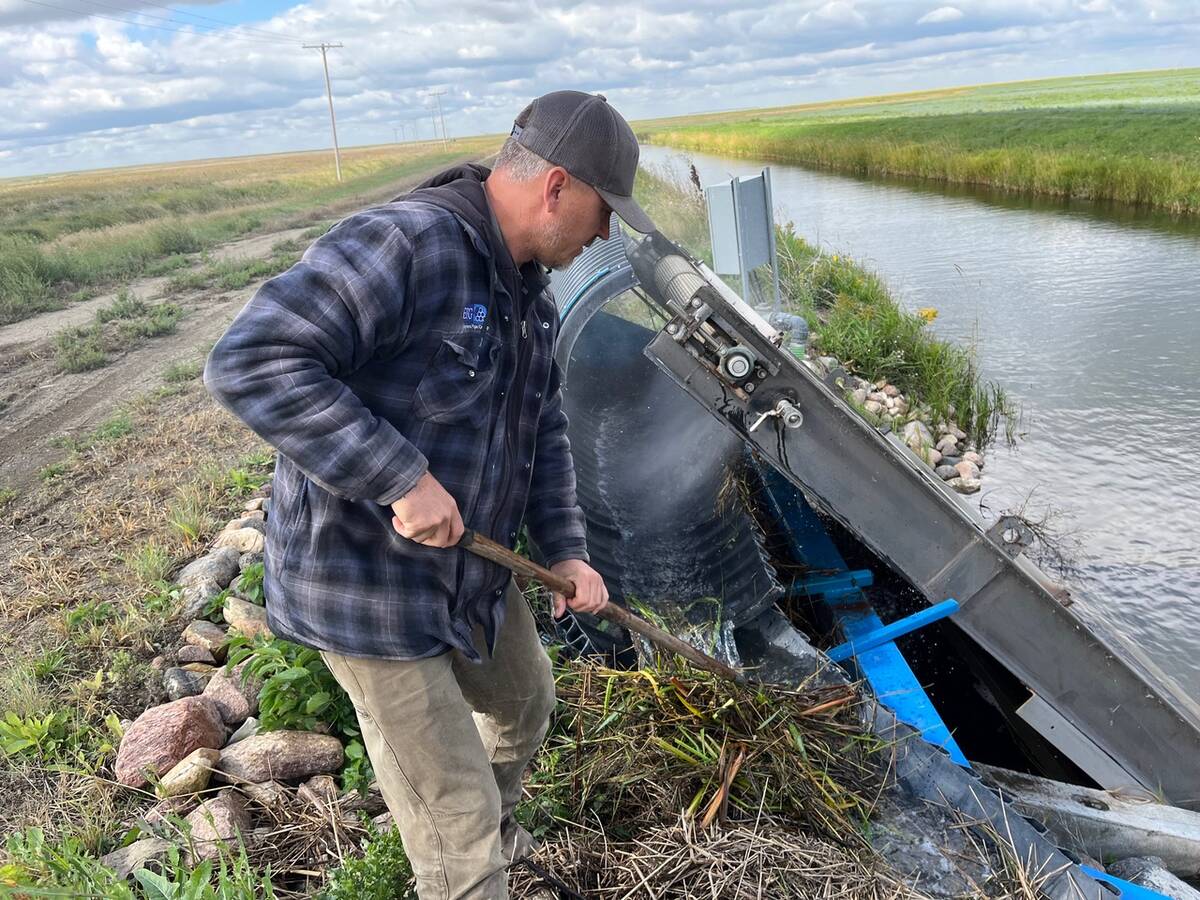A citizens’ commission last week called for a full-scale public review of Manitoba’s expanding hog industry.
Members of the commission prepared a 32-page report that raises questions about the social, economic and environmental implications of that expansion.
“We need to have some credible, comprehensive review of what the heck’s really going on in this industry,” said Roderick MacDonald, a Sask-atchewan lawyer and one of five commissioners who wrote the report.
“We need to see what the whole picture is here. What is the public of Manitoba getting and what is it giving up?”
Read Also

Saskatchewan farmer uses tile drainage to manage water
The integration of both irrigation and tile drainage results in higher yields, water efficiency, improved soils and less nutrient runoff, says one producer.
With the new Maple Leaf plant in Brandon and plans by J.M. Schneider to expand its plant in Winnipeg, the province could one day have a slaughter capacity of 10 million hogs. That is more than double the number of hogs now produced in the province.
The report was based largely on information gathered during a three-day public hearing last fall at Brandon.
Concerned citizens launched the hearing and formed the commission after the Manitoba government decided it would not hold public hearings on Maple Leaf’s hog processing plant at Brandon.
The fall 1999 hearing was sponsored by the North American Fund for Environmental Co-operation and the Sierra Club. But the commissioners insisted last week that their report was prepared independent of any environmental groups.
The report notes that in areas where large-scale meat processing plants were built in North America during the past 20 years, there were benefits in terms of new jobs, more people, a broader tax base and the enticement of other businesses.
But the report also concludes there were high costs associated with attracting that industry. The social costs included the replacement of family farm hog production by corporate barns.
Increased homelessness, crime, domestic abuse and demands for social assistance also accompany large-scale hog production, according to the report. And there are public health and environmental risks associated with that scale of production, the report said.
It also took issue with the way licensing was granted for the $120 million Maple Leaf hog processing plant completed a year ago at Brandon.
Much of the information gathered by the commission came from environmental groups and American researchers.
Players such as Maple Leaf Meats did not attend last fall’s citizens’ hearing, fearing it would be biased against the hog industry.
Michael McCain, Maple Leaf Foods’ president and chief executive officer, said the report was generated by a “group of activists” with a clear bias.
He said in an interview May 26 that Maple Leaf complied with all environmental rules when building its Brandon plant.
The company maintains a firm commitment to operate and grow in an environmentally responsible way, McCain said.
The company has no desire to see smaller producers exit the business, according to McCain, who noted Maple Leaf extends equal treatment to large and small producers.
“It really doesn’t matter to us if you’re a producer with 100 hogs or with a thousand hogs.”
Commissioner Celia Guilford farms near Clearwater, Man. She said she worries that family farms will get edged out of hog production in her area as larger hog barns are built.
“That’s my main concern. We’re ending up with hogs in (rural) Manitoba and no people.”
A copy of the report, released by the Canadian Centre for Policy Alternatives, can be found on the internet at: www.policyalternatives.ca/mb
















